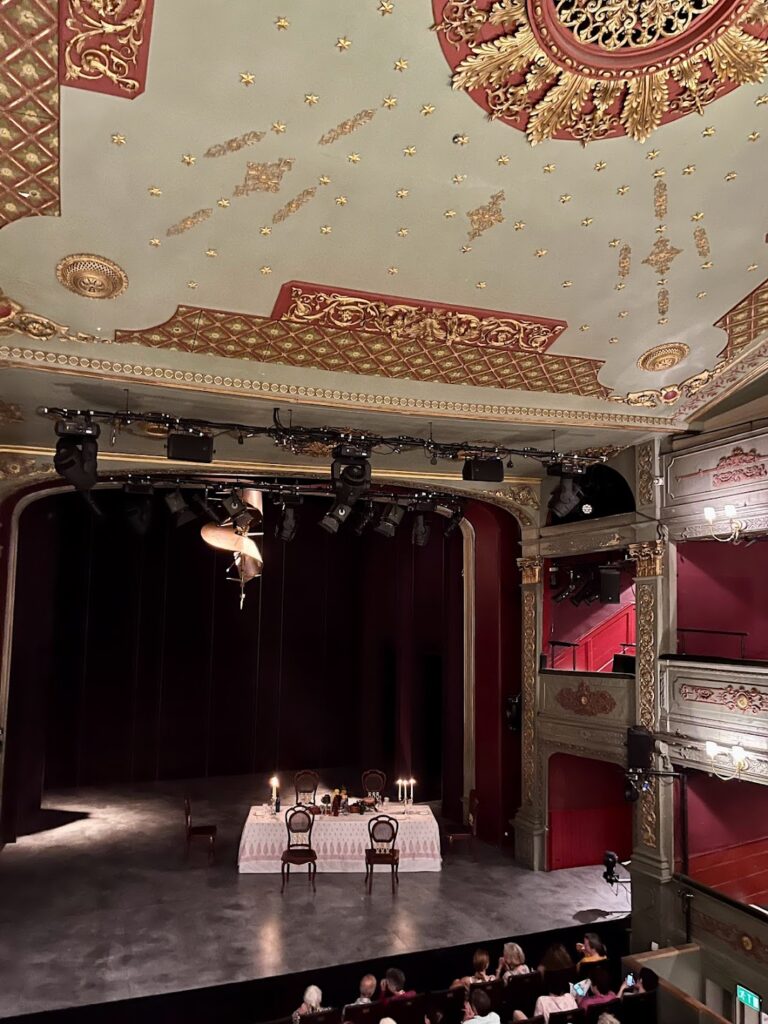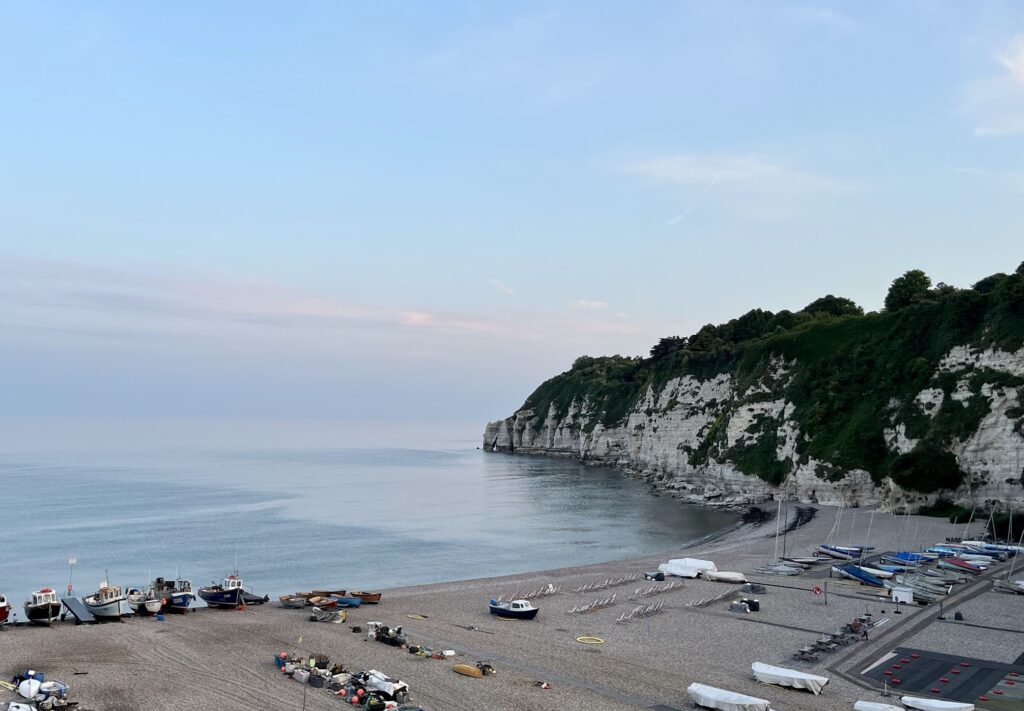This Week’s Bit of String: Comedy face, tragedy face, angry face
Wielding the unholy power we’ve given it, Facebook keeps showing me adverts for a play my husband and I just saw in Bristol. That’s ok, it was brilliant; I’d still be mulling it over without the reminders. I noticed, though, that someone had responded to the theatre trailer with the angry face emoji.
Someone who doesn’t like modern adaptations or diverse casts, I thought. A couple months ago, we loved the RSC’s latest Julius Caesar with women in the main conspirator roles, but not everyone approved. Our latest dramatic adventure was the Bristol Old Vic’s production of Anna Karenina, and you’re not going to adapt that epic without controversy.
I peeked at the comments though, and here was the angry one: “While everyone drowns… The height of sophistication!”
So, they were mad that people spend money on the arts during a cost of living crisis.

I am still thinking about this. I’m an empathetic person, which draws me to the arts in the first place, but I try to be pragmatic as well. Could I benefit more people with how I spend my bit of spare money?
Maybe the angry commenter is so strapped for cash they don’t realise some of us can spend money on more than one thing. I pay for shows a few times per year, but I have charity donations set up monthly. They may also not realise that people who work in theatres need money too.
The actors and writers and crew for Anna Karenina did an incredible job, but I doubt they are earning celebrity-level amounts of cash. If we didn’t buy tickets to see their work, they might be “drowning,” too.
Bread and Circuses
I don’t go to the theatre to look or feel sophisticated. It’s not the most comfortable seating or temperature, half the time, so I’m fidgeting and worrying whether my husband is having an ok time (thankfully, he usually is).
I attend shows for the luxury of sinking into someone else’s story, as with reading a good book. I go for the cleansing catharsis of experiencing someone else’s heartbreak and redemption. I also go because I would hate for hard-working creative performances to go unappreciated. Not many of us get to earn income from our chosen art. I’m happy to pay so that some can.
These are the justifications I make to myself. I don’t know if they make me right.
There have been times when I genuinely, if unquantifiably, feel a performance has changed me as a person. It’s as if what I’ve seen blazed so brightly in its heartfelt declaration of humanity, a spark catches inside me and kindles a desire to love better, to create better. This might sound silly. But I felt permanently altered after seeing Miss Saigon’s 25th Anniversary show adapted for cinema, for example. Or when I watched La Boheme as a 10-year-old.

I can’t prove these things have made me a more compassionate, more resilient person. Even if they did, have they enabled me to benefit society as a whole? Still, there’s something much deeper here than entertainment, than a veneer of culture and sophistication. With Anna Karenina, the audience sees the perfect storm gather of misjudged desire, of lonely male domination, of a society obsessed with honour and prone to condemnation. It’s not genteel, it’s messy and raw.
Resurfacing
I do appreciate reminders to be vigilant of all people’s needs and circumstances, and I want to always be sceptical about my practices. The truth is, anyone is at risk of “drowning” for a variety of reasons. I don’t want to act like the gossips in Anna Karenina, and judge people by trivialities such as how they spend their money. (Well… unless they’ve gained a tonne of it by shady means…)
No one has a right to sniff at how those with limited income spend their money. People who need help buying food shouldn’t be judged for spending money on, say, a smart phone. Not in these times.
Just as there are many things that can drag us under the current, there are many that might buoy us up. Maybe we need to build a righteous ark of highbrow theatre and literature, or witness an uplifting musical, or ride a wave of mass entertainment. Sometimes you just have to coast on a Disney cartoon. I’m not saying “Let them eat Shakespeare” or “Let them eat Netflix,” but I wouldn’t want to deprive anyone of those things any more than I’d deprive someone of food.
How do you use arts to keep yourself and others afloat?


